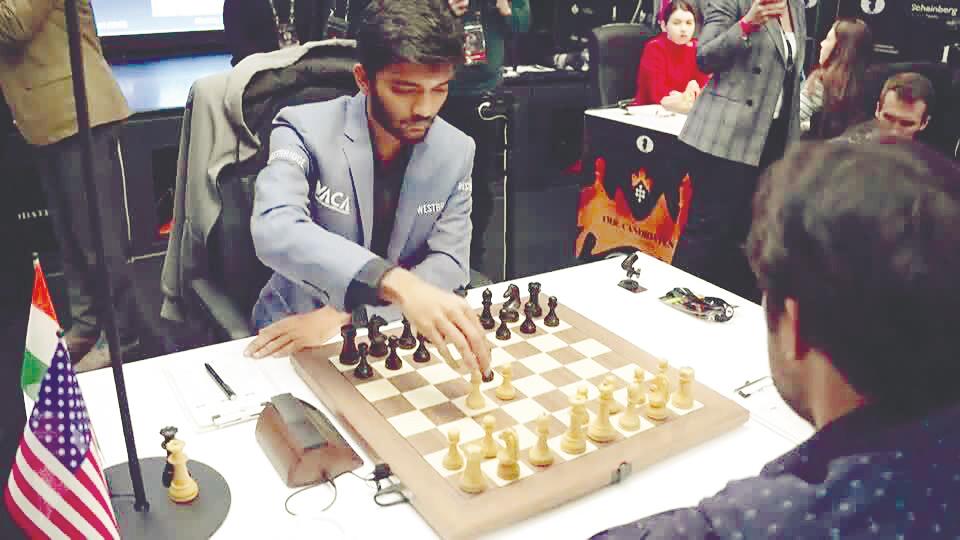WHEN the FIDE World Championship 2024 in Singapore ended, a new era in chess history was created.
India’s Gukesh Dommaraju made history with a stunning victory over China’s reigning champion, Ding Liren, setting two new records: becoming the youngest chess world champion at 18 years and 166 days, and tying India’s title wins with Russia at 6-6, second only to the USSR with 17 wins.
Gukesh is four years younger than Grand Master (GM) Garry Kasparov, when he won the title in 1985, and a few months younger than GM Magnus Carlsen, who claimed the title from India’s first world champion, Viswanathan Anand – Gukesh’s hero and role model. “I am living my dream,” he affirmed.
To fully appreciate the newly crowned champion’s rise to the top, we need to go back to seven year-old Gukesh and his fascination with chess.
In his home city of Chennai, he watched Carlsen win the title from Anand in 2013; and he thought to himself, “I want to be the one to bring the title back to India”.
As his skill in the game grew, his mother, Padma Kumari, a microbiologist, noticed his ability to attack strategically at a remarkably fast rate.
To support his talent and pursuit of his dreams, his parents agreed that he could leave academics after Class IV to devote himself full-time to chess.
The Chennai prodigy has been a chess superstar since achieving the title of grandmaster at the age of 12.
At that time, his parents made some bold sacrifices. With no sponsors, his father, Rajinikanth, left his respected job as an ENT surgeon in 2017 to travel the world with Gukesh on a shoestring budget, competing for the final GM norm.
This left his mother, Padma, to assume the mantle of breadwinner for the family. These decisions were the beginning of years of hard work, unparalleled sacrifice and unmatched determination for all of them.
The financial struggles were real, with money running so low that family friends even donated to sponsor him.
At times, the father-son duo slept on floors and in chairs in airports to save money for accommodations at competition venues. On one occasion, without transportation, his father borrowed a bike from the hotel and pedalled four miles in freezing temperatures to take Gukesh to his competition.
During this period, still without a sponsor, they managed Gukesh’s expenses with his prize money and some crowd-funding initiatives. This level of sacrifice was not lost on Gukesh, as he acknowledged that without their commitment and sacrifice, he would never have made it to the FIDE World Chess Championship.
To prepare Gukesh for this ultimate test of ability, his mental coach, Paddy Upton, trained him once a week for six months, to have him so prepared that no contact would be needed during the match.
“He is not only a chess world champion, he is a world-class human being, first,” Upton said.
From the beginning, his mother impressed on him how crucial it was for him to always be humble in spirit. The first four things Gukesh did after winning the world title, define him as a true champion.
First, he reset the chess board and paid respect to it; next, he gave thanks to the Almighty; then he hugged his parents and trainer; and lastly, he praised Ding Liren as a great opponent and a true champion.
We can look at other champions too, to see how rugged the road to the top can be. Before they have sponsors to ease the stressors, times can be challenging.
Only the strongest survive. Whether it is Datuk Nicol David, Malaysia’s eight-time Women’s Squash World Champion, whose parents sacrificed to support her. Fortunately, some bank sponsors and the National Sports Council made her journey to success much easier.
Serena Williams, Women’s Tennis Champion, won 23 Grand Slam Singles titles. Along with her sister Venus, they were the only women tennis players to win Olympic Gold in both singles and doubles categories. Both were coached by their father, to save money. All of them realised the sacrifices and struggles that those who loved them had endured.
Culminating Gukesh’s accolades and congratulatory messages was most probably the praise and personal message from Garry Kasparov on X, where he wrote, “Congratulations on your victory today. You have summitted the highest peak of all, making your mother happy.”
While his parents are happy, it is no stretch to say that all of India, and Indians everywhere, are overjoyed and filled with pride.
Finally, at long last, their financial burdens are eased, with his winnings of US$600,000 (RM2.67 million). He was also given a Mercedes.
Years of struggle, sacrifice and self-belief have finally paid off.
This success story can be an inspiration to youths. With the will and passion to succeed, a clear vision combined with action can lead to the desired results, just like Gukesh Dommaraju.
C. Sathasivam Sitheravellu
Seremban









